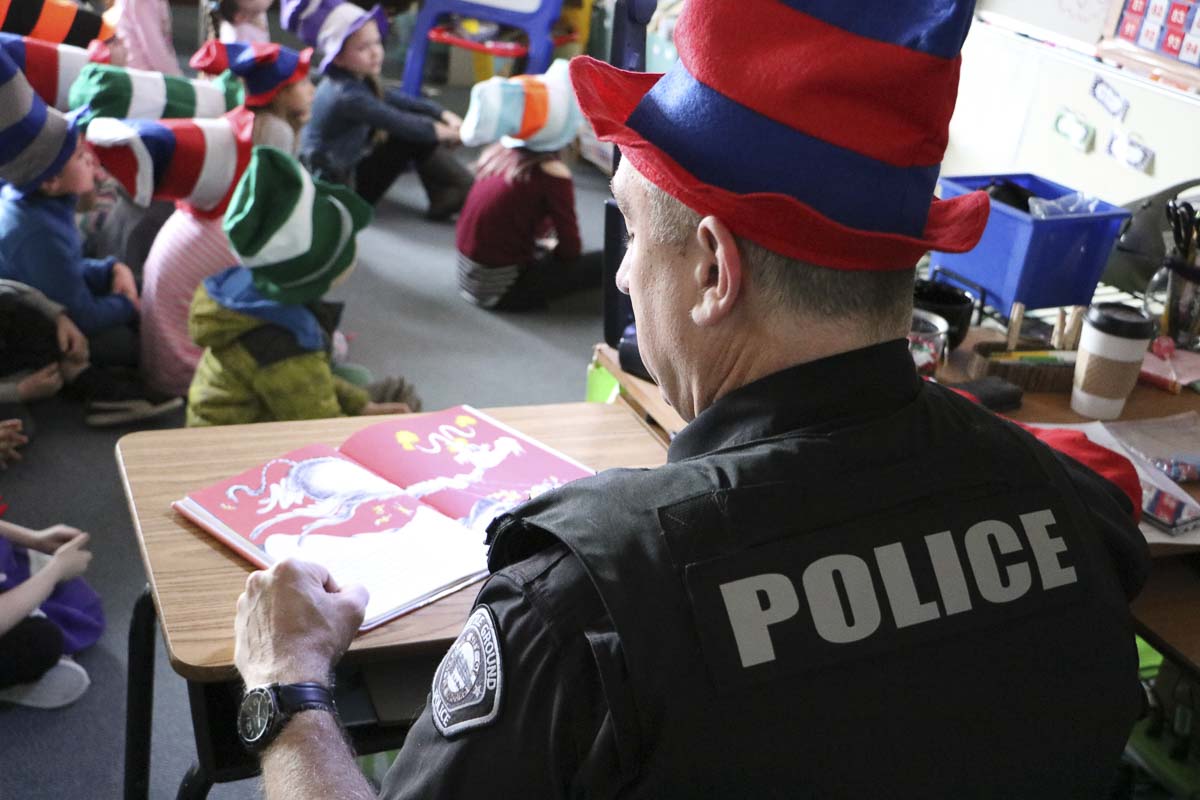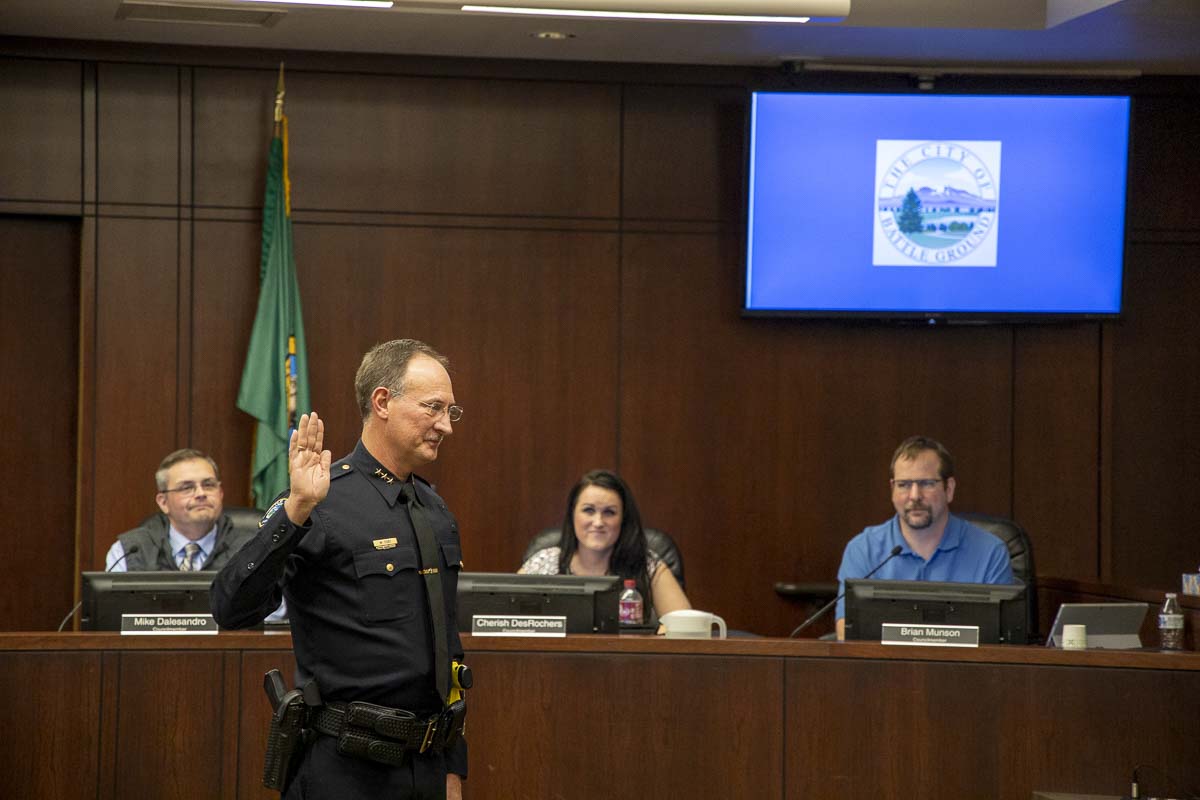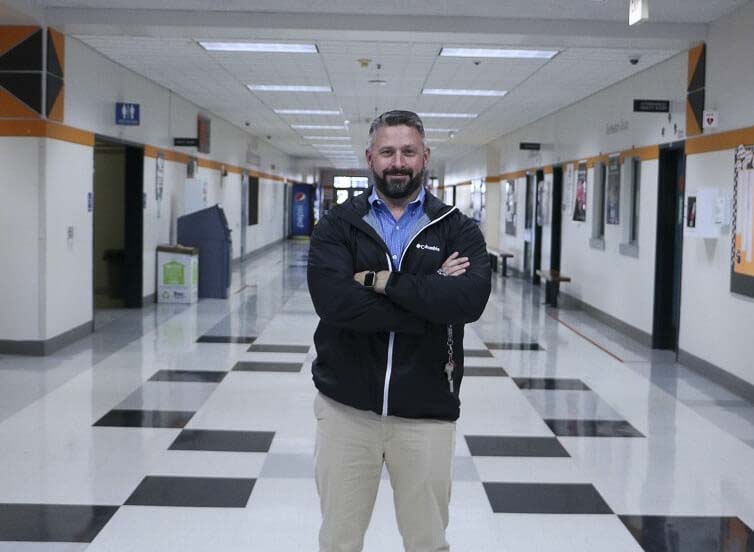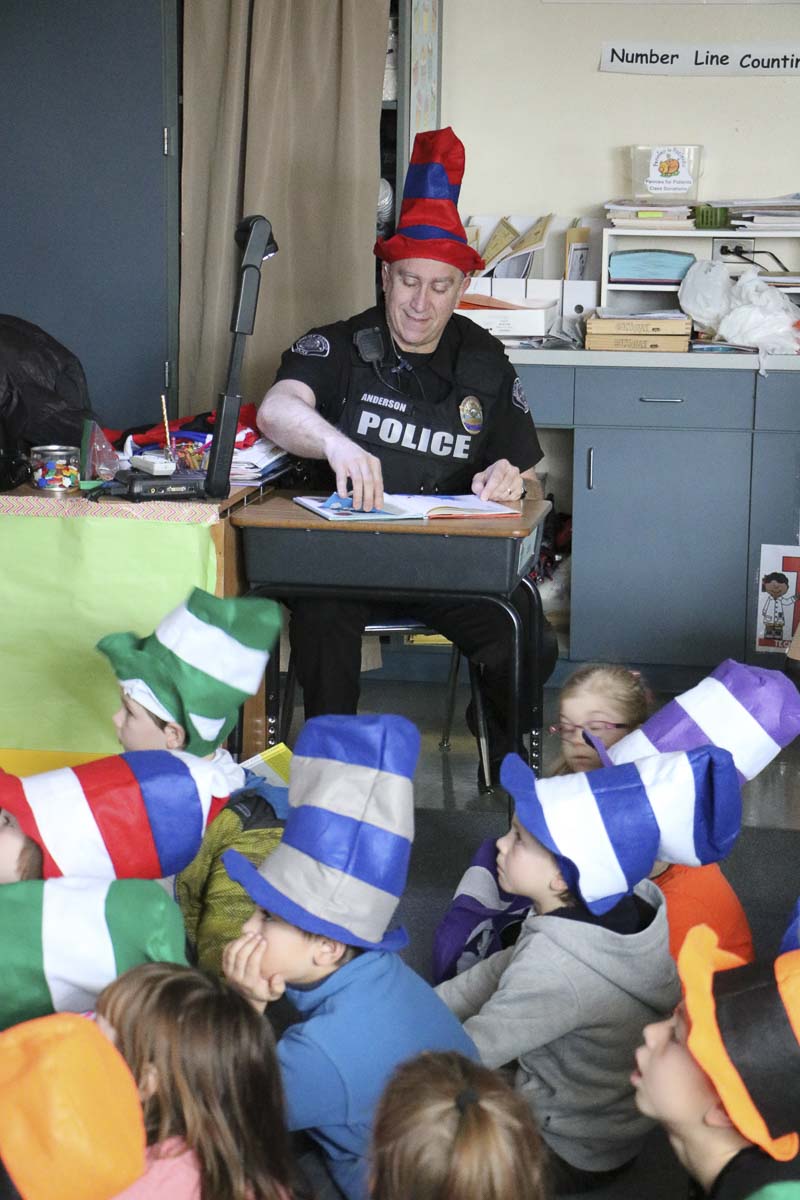The school district and police department see the program as a chance to create a positive impact on the lives of students
BATTLE GROUND — On June 4, the city of Battle Ground sent out an innocuous press release announcing that, after several years of trying, they had been approved for a $125,000 grant to provide an additional School Resource Officer.
The grant, which is provided by the US Department of Justice’s Community Oriented Policing Services program, is handed out to just a handful of cities each year.

With its approval, Battle Ground became just the 12th city in the state of Washington to successfully apply for the funding, which covers approximately one-third of the annual cost of a new SRO for three years. The school district and city would split the remaining cost, and be required to maintain the position for at least one more year after the funding expires.
The new SRO would work with the district’s primary and middle schools, freeing up the current SRO to focus on the high school.
“This is great news for youth and families in Battle Ground,” said Mayor Adrian Cortes in a release announcing the grant approval. “With this funding the police department will be able to reach even more students who benefit from its outstanding school resource officer program.”
Former Mayor Mike Dalesandro, who remains on the City Council, also expressed support for the grant in a post on his personal Facebook page, likewise calling it “great news.”
The announcement came at an odd time. Portland Public Schools Superintendent Guadalupe Guerrero also announced on June 4 that they would be “discontinuing the regular presence of school resource officers.”
The move came following a week of unrest following the in-custody death of George Floyd in Minneapolis, Minnesota in late May, which has sparked nearly a month of protests across much of the country.
Two days after his initial supportive post, Dalesandro followed up with another statement, saying he had heard “concerns” from people in the community about “increasing the police presence” in schools, and that he was considering withholding support for the grant, which needs approval from the City Council, as well as the Battle Ground Public School’s Board of Directors.
Dalesandro’s post resulted in an ethics complaint being filed by fellow Councilor Shauna Walters, who alleged that the former mayor had failed to clearly indicate that he was speaking of his own views, and not on behalf of the full council.
The ethics committee met earlier this week and determined that there wasn’t enough evidence to support Walters’ claim against Dalesandro.
The story took another turn shortly after the announcement of the grant when The Columbian Newspaper ran a story, which focused on a 2011 study done by the Justice Policy Institute which concluded school resource officers are a “waste of resources.”
The study’s author, Amanda Petteruti, concluded that police officers in schools can create a “difficult learning environment” for some students.
“Students are needlessly arrested for offenses as minor as disorderly conduct, which can include swearing at a teacher or throwing spitballs,” noted Petteruti. “SROs lead to discipline applied without the filter of school administrators or policies. This in turn leads to a troubling disruption of the educational process through suspension and expulsion, the result of which is some students who never become re-connected to school.”
Even after the comments by Dalesandro and The Columbian article, Battle Ground Police Chief Mike Fort says he has gotten “zero calls” about the SRO program.
“None. Pro or con,” he told Clark County Today.

“If I heard, for a minute, the negative comments in any forums that I’m in about the SRO program … I would listen to them and take action on that,” Fort added. “And in fact, I am, in the sense that they’re asking for more. They want more of these positive relationships.”
Those positive relationships are the duty of Phil Anderson, who will be entering his fourth year as the district’s SRO this fall. Another SRO, provided by the Clark County Sheriff’s Office, is stationed at Prairie High School.
“The vast majority of the interactions have been an opportunity to just talk to these kids,” says Anderson. “I mean, they’re great kids. Just, ‘how are you doing?’ ‘How are things going?’ ‘I care about you all.’”
Battle Ground High School Principal Charbonneau Gourde, who joined the district in 2018, calls Anderson a “calming influence” in the halls.

“He has all kinds of bad jokes,” says Gourde. “Almost every day the kids will come up and talk with him, and I think it’s really valuable.”
Similarly to Chief Fort, Gourde says he has not heard any negative feedback on the SRO program, from parents or students.
“My experience has been entirely positive,” he says.
Tom Adams, the district’s director of student services, says the SRO program represents a chance for students to have a positive interaction with police, with the goal being to keep them from running afoul of the law.
“They’re not there to arrest kids,” says Adams. “They’re there to educate, to help, to be part of the education system.”
Anderson said he views his main job as a resource to the students, many of whom confide in him about things happening in their lives outside of school.
“There’s been a couple of times, and it really meant a lot to me, when there’ll be a student who comes into my office, and they’re bringing someone else,” Anderson recalls. “And they say, ‘hey, look, this is my friend. He or she has told me some things. There’s some things going on. I’m really hoping they will be able to talk to you,’ and they look to their friend and say, ‘it’s okay, you can trust this person.’”

Those conversations have occasionally led to investigations into allegations of abuse, drug use, or other problems. Sometimes it just results in the student feeling like they’ve been heard.
And it extends outside of the high school, says Fort.
Right now, with schools closed, Officer Anderson is back on a regular beat for the department. But he’s the one who usually gets called when a complaint comes in about young people somewhere in town.
“Because he’s built these daily relationships with these kids,” says Fort. “He’s able to continue that when we have to go address some issue with young people at the skate park, or a parking lot somewhere.”
The ability to roll up on a group of young people and call them by name, Anderson says, tends to diffuse what might otherwise be a confrontational situation.
“Most of the kids, they’re very reasonable,” he says. “And if you give them a chance, they will excel.”
Recently retired Battle Ground Police Chief Bob Richardson worked with the school district to implement a new approach to discipline called restorative justice, something Fort says he supported and intends to continue.
“Restorative justice processes are intentionally meant to keep people, or kids especially, out of the criminal justice system,” says Fort. “It’s exactly the opposite of what some think, that we’re intentionally arresting people and putting them in jail.”
Fort says the school resource officer makes, on average, seven arrests during the academic year, compared to nearly 50 for a regular patrol officer over the same time period.
If a minor is found with drugs or alcohol, the police department now offers them and their parents the option of connecting with the district’s prevention intervention specialist. If the student agrees, and attends the weekly meetings without fail, no charges are filed.
“This year all of the 19 students who were in the program … finished,” Anderson says. “So I was able to close those cases out, there’s no charge, there’s no arrest. I mean, to me, that’s a success.”
The School Resource Officer program picked up steam after the Columbine High School massacre in 1999 in which 15 people were killed and two dozen others injured.
The idea was that having officers embedded in the schools meant a quicker response in the event of a similar incident.
The National Association of School Resource Officers (NASRO) estimates there are currently between 14,000 and 20,000 SROs embedded in approximately 20 percent of K-12 schools nationwide.
Their reputation, however, took a hit in 2017, when an SRO waited outside of a building in Parkland, Florida as 11 people inside were killed.
That thinking has lingered, says Anderson, as evidenced by questions submitted by students in a political science class at the start of this school year.
“I think it was a sad reflection on the times … when over half of the questions were, ‘if something happened in the school Officer Anderson, would you protect us?’” he says. “I’m glad I’m here and I can respond much faster than someone who’s on patrol who has to come from a distance.”
Increasingly, however, the focus has turned from being the first to respond to a shooting, to preventing them in the first place. That has led to more funding for counselors and intervention specialists at many schools.
“We really need to be thinking about — where will we get the best bang for our buck?” said Marc Schindler, executive director of Justice Policy Institute last month. “Where will we get the best outcomes?”
But Adams insists this isn’t necessarily an either/or proposition in Battle Ground.
“I do get some of the comments that, from a financial standpoint, it does cost money,” Adams says of the SRO program. “So should we be investing in counselors, intervention specialists, and psychologists? Well, we have, actually. We are, above and beyond.”
Gourde says the district has taken a much more direct approach when it comes to restorative justice in recent years, with a focus towards educating students and getting them help when it’s needed.
“I have seen officers use the idea that they could come back with charges later if certain behaviors don’t change,” says Gourde. “I don’t know that that’s as effective as an authority figure empathizing and really trying to learn from a kid and get to know a kid and a family. And we have that with Phil. He is really amazing at building relationships with all community members. I mean, maybe he’s atypical because he is genuinely just a good human being.”
For his part, Anderson says it would be naive to say there aren’t people who have legitimate reasons to be hesitant about an armed police officer in their child’s school.
“I share your concern,” he says of those people. “However, the way we’re doing this, I’m hoping what you’ll see will not only not feed those fears, but they will establish better relationships with kids and have real positive outcomes.”
Fort says, if approved, the new SRO will be specially trained to work with children, and augment what the district is already doing in terms of support for students.
“In this, you’re selected because of your ability to empathize, to communicate, to recognize problems, and to address them appropriately,” says Fort. “And especially without having to take them to jail.”
“The idea that my arrest statistics are way down, I’m very happy with that,” Anderson adds. “To me, that’s success. It’s not, ‘hey, I arrested three kids last week, and I took two of them to juvenile detention.’”
The SRO grant will be debated by the Battle Ground City Council at an upcoming meeting sometime this Summer. If approved there, the district’s Board of Directors would also need to approve the additional position and expense.




